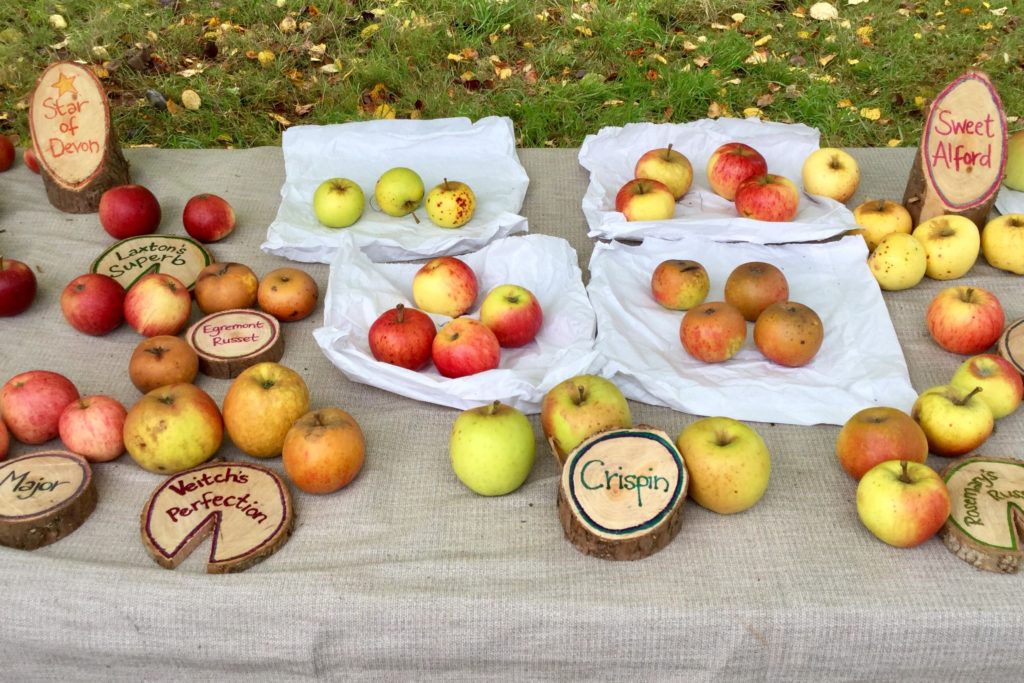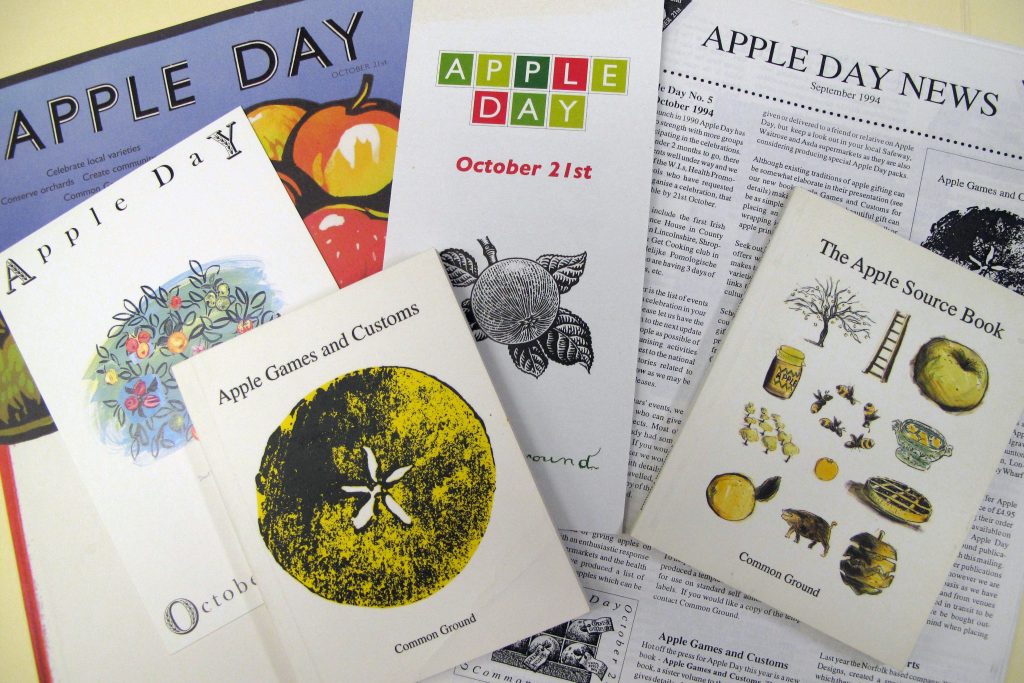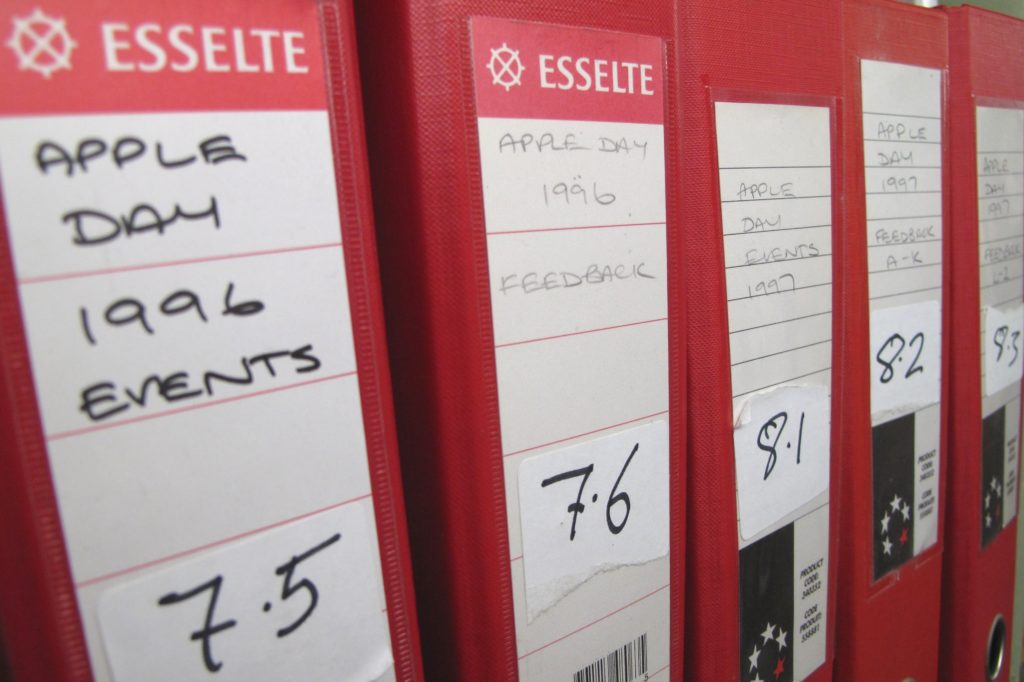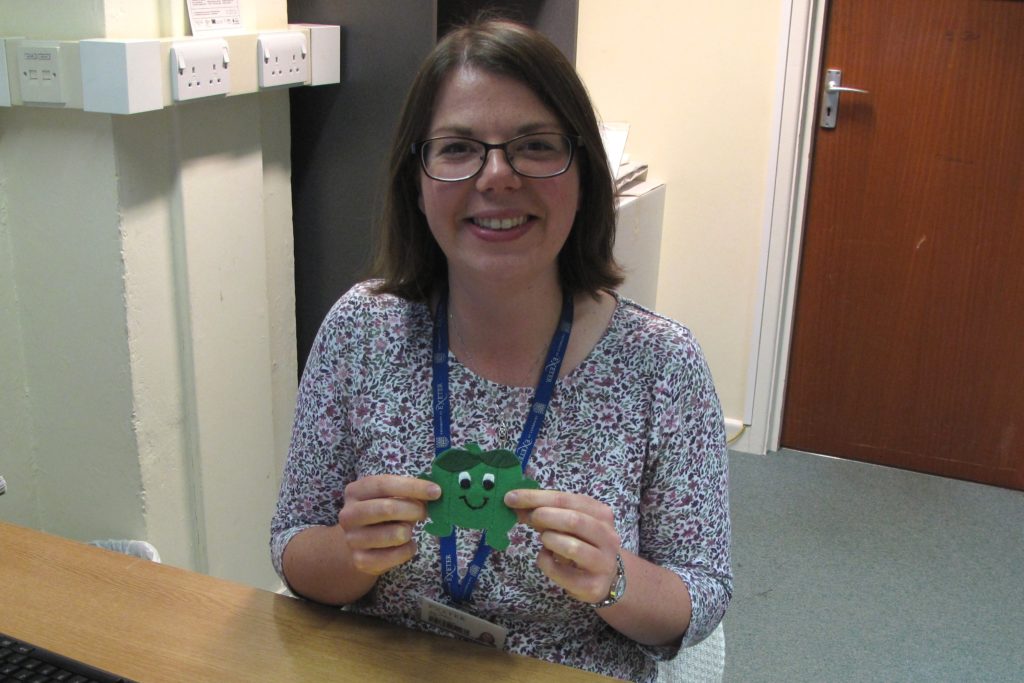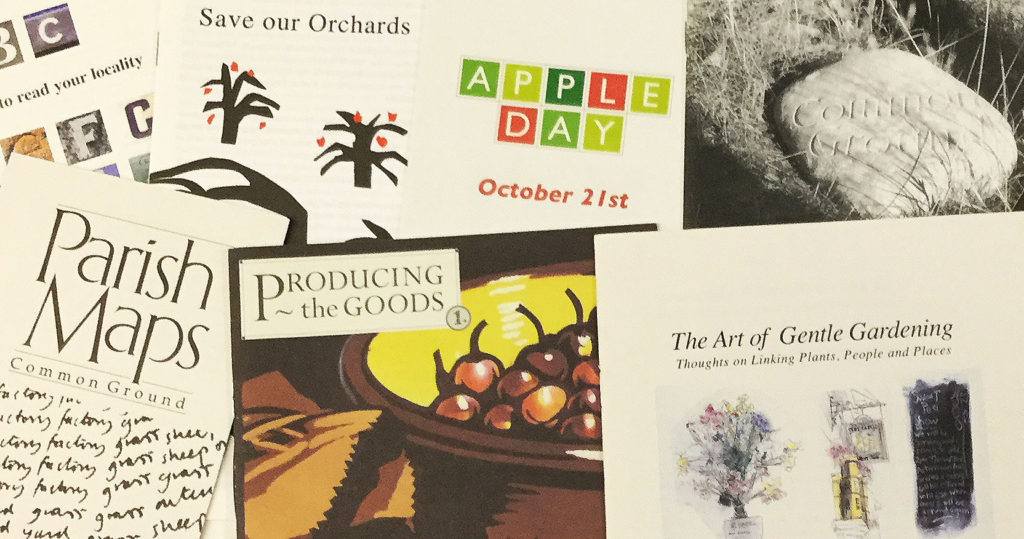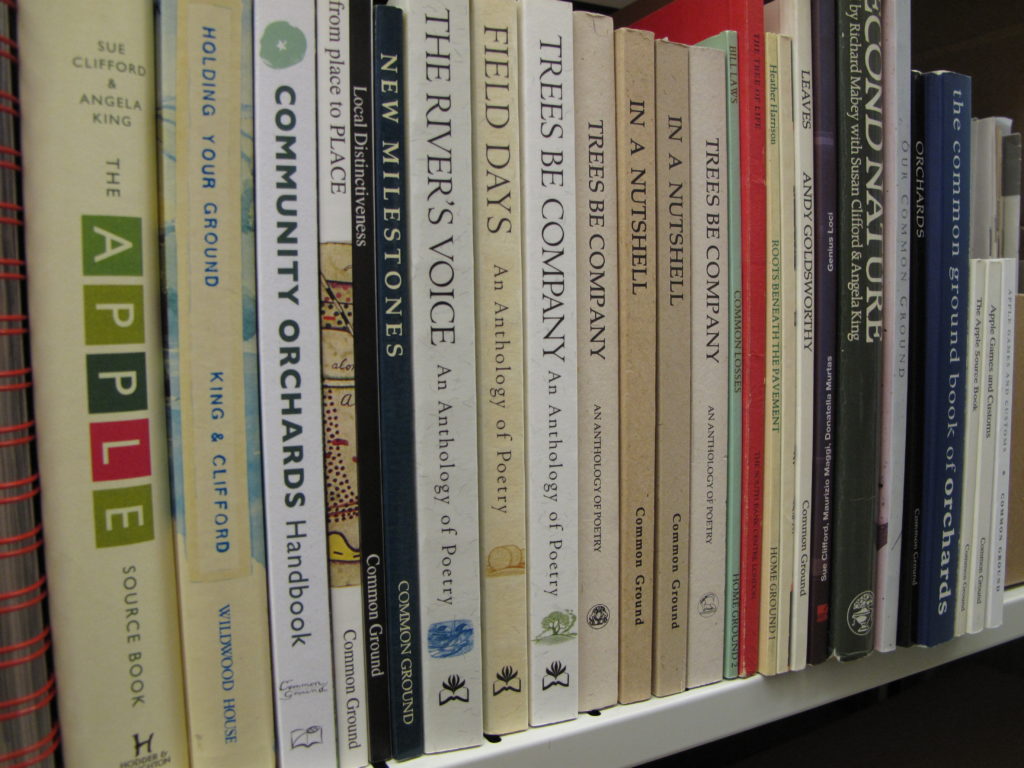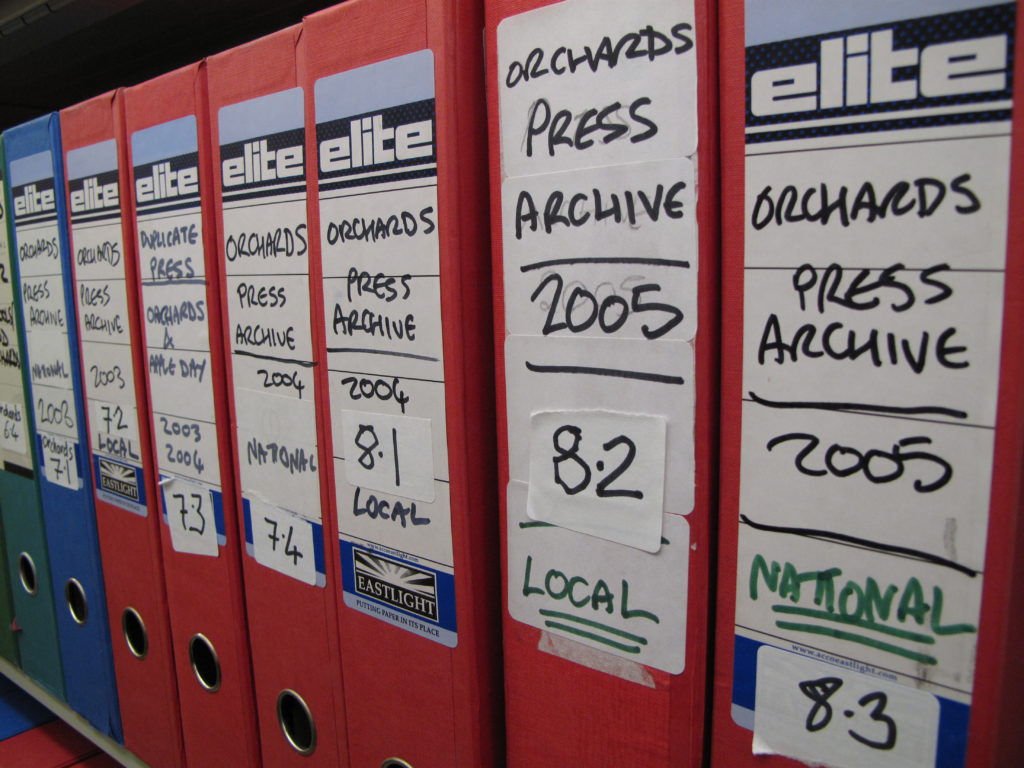In December 1990, the arts and environmental charity Common Ground introduced a new annual custom which it called ‘Tree Dressing Day’. ‘Tree Dressing Day’ was envisioned by Common Ground as a day for people to decorate and celebrate trees in their local area. It was to be held on the first weekend of December of each year, neatly coinciding with the already existing National Tree Week. As the first weekend of December 2018 approaches, I delve into the Common Ground archive to find out how it all began…
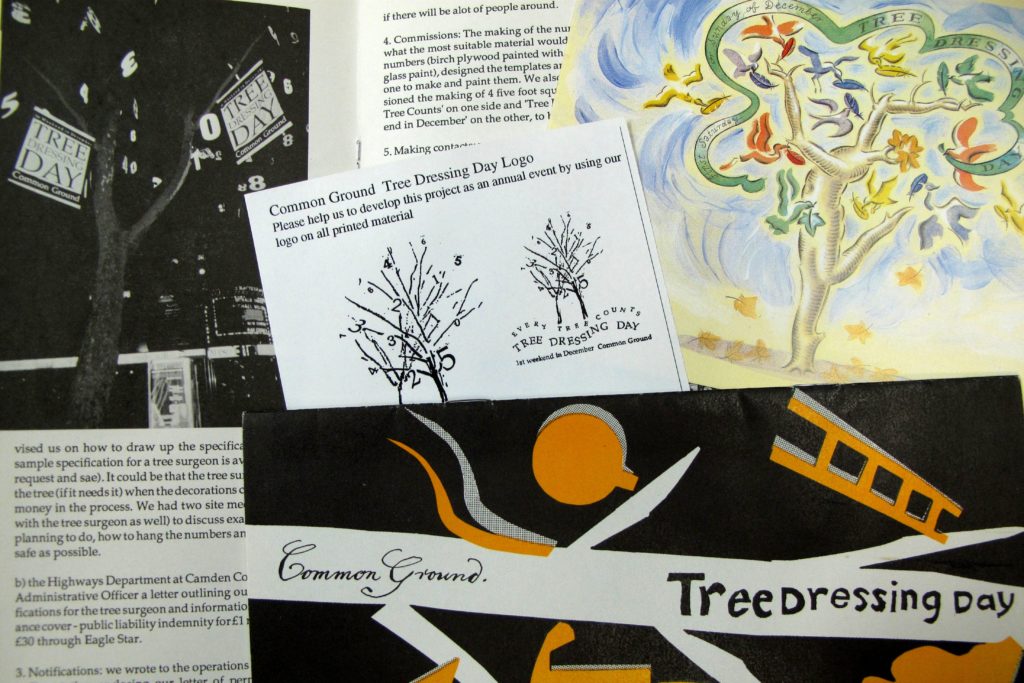
Promotional material in the archive relating to ‘Tree Dressing Day’
Common Ground started work on its Trees, Woods and the Green Man project in 1986. In a leaflet preserved in the archive, the charity explains the meaning and purpose behind the project:
‘They [trees] have been our friends through the ages and they have helped us make sense of the world. They are important economically, socially and ecologically and they are deeply part of many cultures. They need our help now, not just in the tropical forests, but here in the street and down the lane…Common Ground’s work around Trees, Woods and the Green Man is trying to give information and ideas to help you to look at the trees around you and think of ways to involve yourself and others in celebrating and caring for them. Make every tree a wanted tree.’ (Reference: EUL MS 416/PRO/4, File 2.1)
The project resulted in a variety of activities and events, including publications, exhibitions, and artistic commissions. It was also from the Trees, Woods and the Green Man project that the new calendar custom ‘Tree Dressing Day’ emerged.
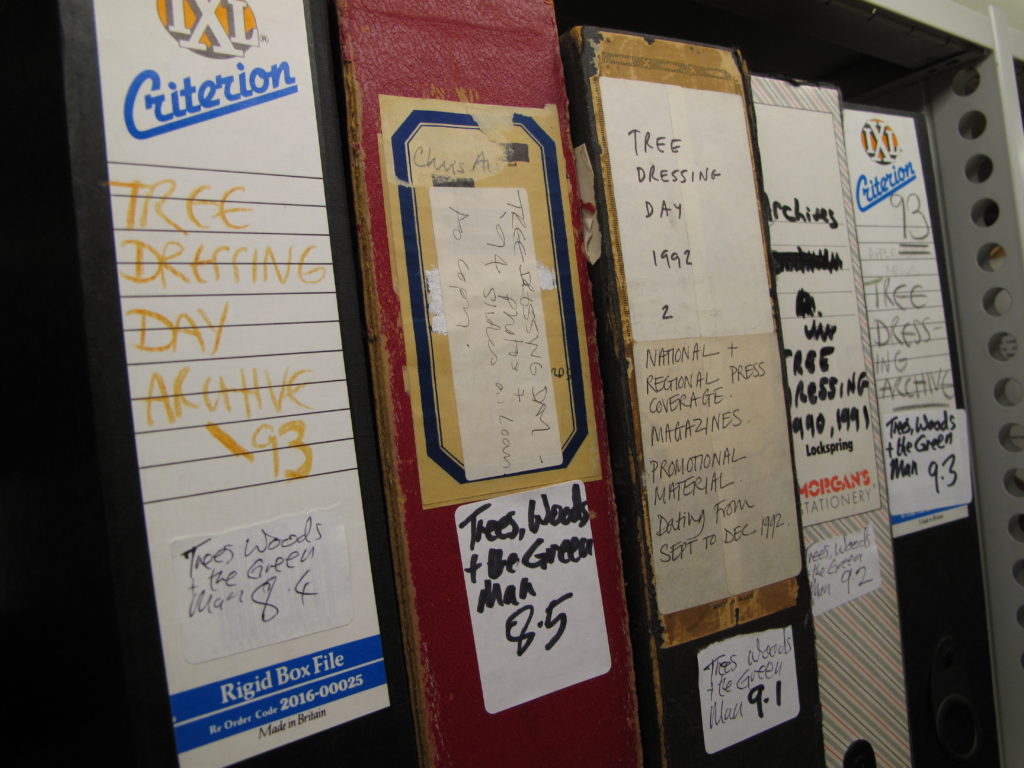
‘Tree Dressing Day’ files in the Common Ground archive
Early research by Common Ground into the custom of dressing trees revealed that it had existed for centuries in many different forms all around the world. This inspired the charity to launch its own ‘Tree Dressing Day’, providing advice and encouraging people to decorate trees in their neighbourhoods. The first ‘Tree Dressing Day’ was celebrated in 1990, and the custom has proven to be sustainable, with celebrations continuing to the present day. The success of the initiative and Common Ground’s enthusiasm for it are indicated in a report dated February 1993, in which Common Ground writes:
‘There is excitement among us that we may have begun the reinvention of a tradition in which young and old, professional and amateur, all cultures and places city and country can share. And in which the seeds of the social and public celebration of trees…becomes an easy first step to long term shared commitment and care’. (Reference: EUL MS 416/PRO/4, Report on Tree Dressing Day in 1992, File 1.4)
The Common Ground archive contains a significant amount of material relating to ‘Tree Dressing Day’, including correspondence, reports, press releases, photographs, research material, promotional material and press clippings. It even includes some decorations that were used to dress trees! This section of the Common Ground archive will be catalogued in the course of the next two years, making this exciting material much easier to discover and access.
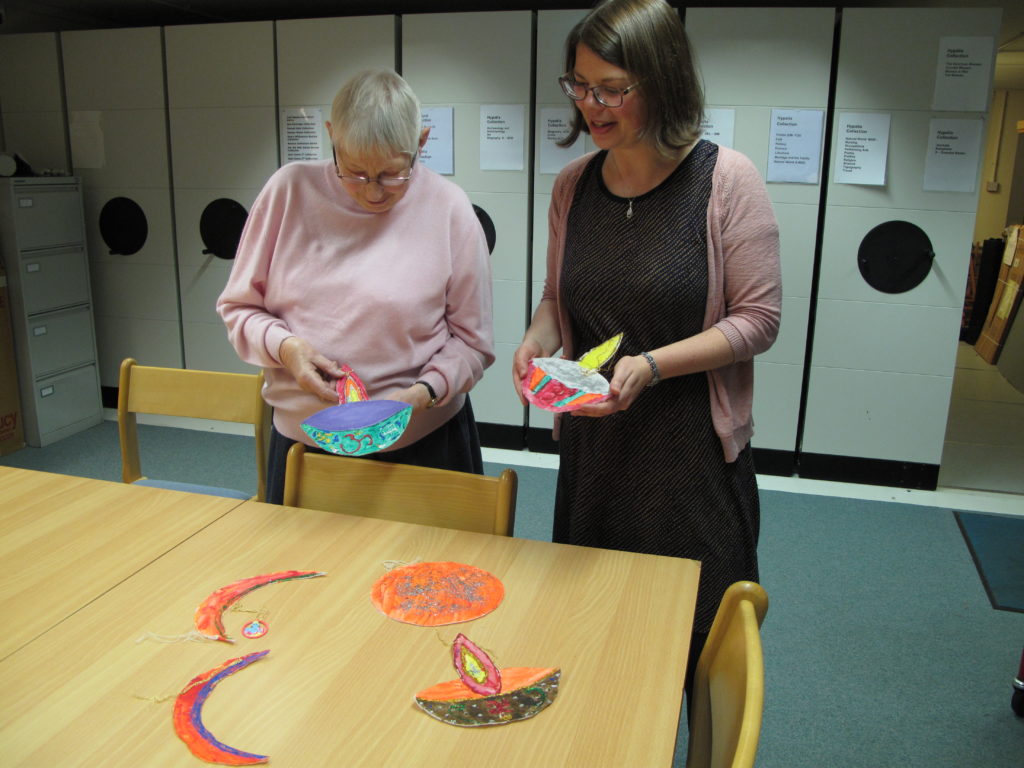
Archivist showing Sue, one of our volunteers, decorations in the Common Ground the archive that were made by the UK Asian Women Conference for ‘Tree Dressing Day’ (c 1992 or 1993)
Find out more about ‘Tree Dressing Day’ on the Common Ground website, which also includes some lovely images.
Why not start your exploration of the Common Ground archive via our online catalogue today? Simply search ‘Common Ground’ or the reference number ‘EUL MS 416’.
You can also find out more about the Common Ground archive cataloguing project by taking a look back at our previous blog posts.
By Annie, Project Archivist
Cataloguing Update! [December 2020]
The archive material relating to Tree Dressing Day has now been catalogue. The material relating to Tree Dressing Day includes project proposals, event information forms, correspondence, reports, press releases, promotional material, press clippings, photographs, and research material. You can browse record descriptions on our online catalogue here.
